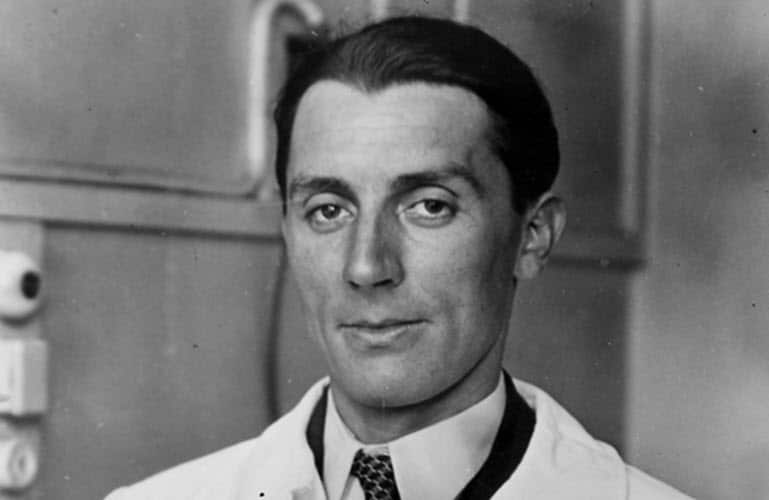Frederic Joliot-Curie (19 March 1900 – 14 August 1958) was a French physicist and chemist who is best known for his pioneering work on nuclear physics and the discovery of artificial radioactivity.
Life and Career
He was born on 19 March 1900, in Paris, France. He received his education at the École de Physique et Chimie Industrielles de la Ville de Paris, where he studied from 1918 to 1921. This was a prestigious engineering school in Paris that focused on physics and chemistry.
After completing his studies at the École de Physique et Chimie Industrielles, Joliot-Curie continued his education at the University of Paris, where he obtained his Ph.D. in physics in 1930. His doctoral thesis was on the topic of the photodisintegration of light nuclei.
During his time at the University of Paris, Joliot-Curie worked closely with the famous physicist Marie Curie, who was also his wife Irène’s mother. He was deeply influenced by Marie Curie’s work on radioactivity and went on to make significant contributions to the field himself.
In 1934, Joliot-Curie and his wife, Irène Joliot-Curie, made a groundbreaking discovery when they produced the first artificial radioisotope, which they named “radioactive nitrogen.” This discovery paved the way for the development of nuclear power and opened new avenues of research in nuclear physics and chemistry.
He was a committed socialist and a member of the French Communist Party. During World War II, he played an active role in the French Resistance against the German occupation of France.
After the war, he became involved in the development of nuclear energy for peaceful purposes. He was a strong advocate for the peaceful use of atomic energy and helped to establish the French Atomic Energy Commission in 1945. He served as the first high commissioner of the CEA from 1946 until his death in 1958.
Under his leadership, the CEA made important contributions to the development of nuclear energy for peaceful purposes, including the construction of France’s first nuclear reactor.
He died on 14 August 1958 in Paris, France.
Award and Legacy
He was awarded the Nobel Prize in Chemistry in 1935, together with his wife Irène, for their discovery of artificial radioactivity.
His legacy is particularly significant in France, where he is remembered as a national hero and a symbol of scientific excellence and social justice.
In recognition of his achievements, numerous institutions and landmarks have been named in his honor, including the Frédéric Joliot-Curie National Research Institute for Radiobiology and Radiohygiene and the Frédéric Joliot-Curie Library at the University of Paris.

